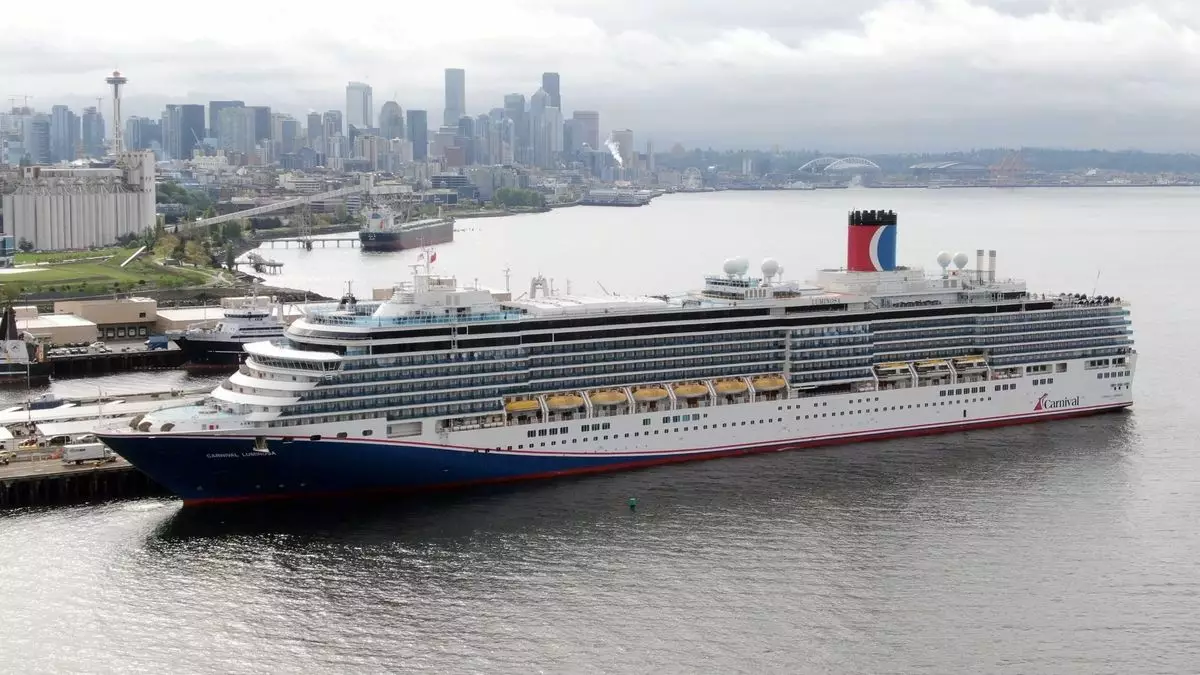In a world where economic fluctuations and global tensions often dictate the fate of corporations, Carnival Corp. stands out as a beacon of resilience. Under the leadership of CEO Josh Weinstein, the cruise giant reported staggering first-quarter results, setting a record with $5.8 billion in revenue. This figure marks an impressive increase of over $400 million compared to the same period the previous year. Such results underscore not only the company’s robust business model but also a shifting consumer sentiment favoring cruise vacations as a preferred leisure option.
Weinstein’s optimism about the first quarter cannot be overstated. He emphasized a „pretty fantastic“ performance driven by soaring consumer demand and onboard spending. The statistics speak volumes: up 10% year-over-year, onboard revenue has exceeded expectations. This uptick indicates not just recovery but a vigorous resurgence of the cruise culture, buoyed by passengers willing to invest more on their journeys.
Exceptional Demand and Onboard Spending Trends
What is particularly noteworthy is the remarkable close-in demand, which refers to bookings made shortly before sailing. The thriving interest in last-minute cruises suggests a renewed consumer eagerness to embark on travel experiences that may have languished during prior economic downturns. Passengers not only seek adventure but are also inclined to indulge in onboard offerings. This signals a shift in customer behavior; travelers are now willing to spend more on experiences during their trips, indicating a strong confidence in the value cruise vacations offer.
Furthermore, the company’s European brands have been outperforming expectations, seeing greater occupancy and pricing than in previous years. With a 103% occupancy rate—up from 102%—Carnival’s positioning in this market remains strategic and effective, highlighting the robust appetite for travel in Europe. Such performance echoes the broader trend of travel being reborn as an essential leisure activity following pandemic restrictions.
Booking Trends and Financial Maneuvering
As the cruise company navigates through waters that are both promising and volatile, it’s crucial to examine the booking trends beyond just the immediate revenue. The Wave season, a critical period for securing future bookings, has led to unprecedented success for Carnival. Entering 2023, the company boasts an impressive 80% of cruise inventory booked for 2025, with promising historical pricing levels. These figures align with a broader rebound in travel, suggesting that consumers are now prioritizing future vacations with a renewed dedication.
However, caution remains key, even in light of this strong performance. Analysts like Patrick Scholes from Truist Securities have noted a slow down in the booking pace compared to the bustling December period. This is a reminder that while the festive season propelled interest, sustained momentum must be strategically cultivated as global economic uncertainties loom.
In response to these pressures, Carnival has successfully restructured its financial strategies, refinancing $5.5 billion in debt and realizing substantial annualized interest savings. While the company reported a $78 million net loss due to costs associated with this debt management, the $543 million operating income showcases a vigorous drive to ensure long-term stability and growth.
Carnival Corp’s ability to sustain its trajectory amid market complexities marks it as a formidable player in the travel industry—one that is fostering a consumer culture eager to embrace the seas once again.


Napsat komentář